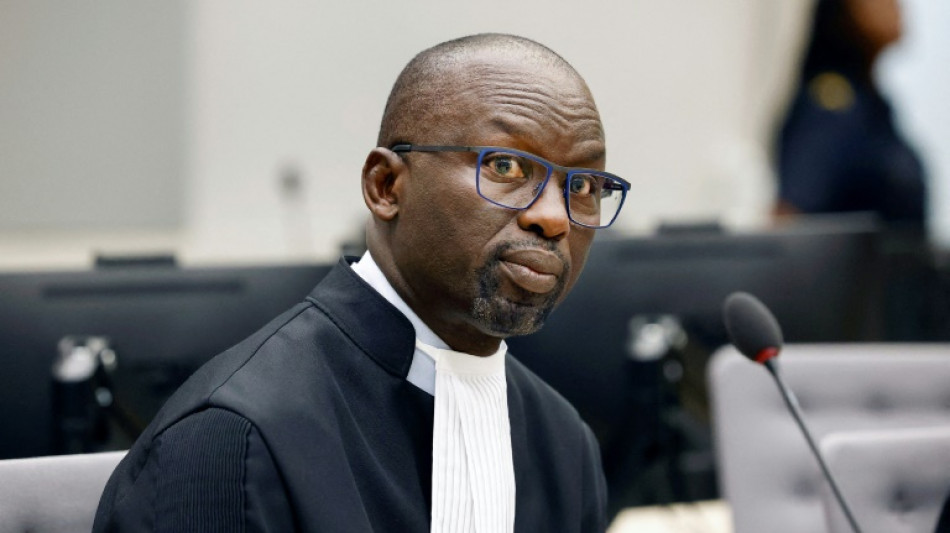
-
 Reclusive Turkmenistan bids to go tobacco-free in 2025
Reclusive Turkmenistan bids to go tobacco-free in 2025
-
From TikTok to frontrunner, inside Paz's presidential campaign in Bolivia
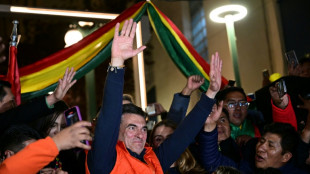
-
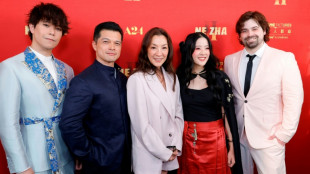 Chinese mega-hit 'Ne Zha II' enlists Michelle Yeoh to woo US audiences
Chinese mega-hit 'Ne Zha II' enlists Michelle Yeoh to woo US audiences
-
India celebrates clean energy milestone but coal still king
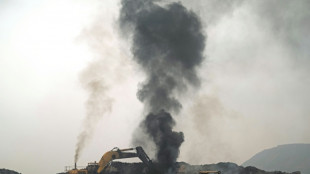
-
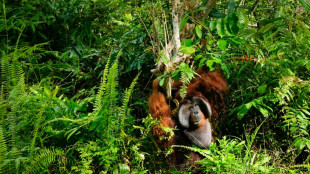 US demand for RVs fuels deforestation on Indonesia's Borneo: NGOs
US demand for RVs fuels deforestation on Indonesia's Borneo: NGOs
-
Kneecap rapper faces court on terror charge over Hezbollah flag
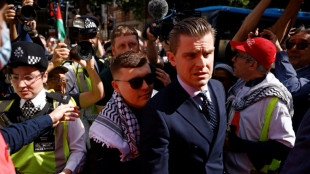
-
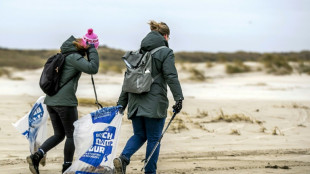 Dutch divers still haul up debris six years after container spill
Dutch divers still haul up debris six years after container spill
-
Asian markets dip after US tech slide
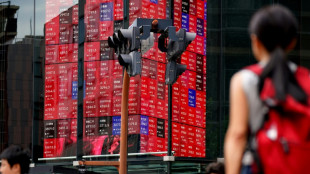
-
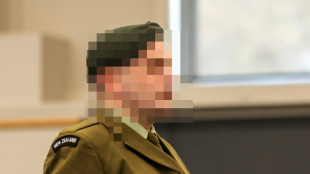 NZ soldier sentenced to two years' detention for attempted espionage
NZ soldier sentenced to two years' detention for attempted espionage
-
Time to Go: Japan pro board game player retires at 98
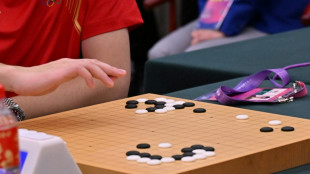
-
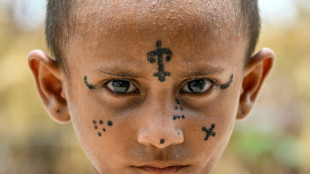 City girls snub traditional Hindu face tattoos in Pakistan
City girls snub traditional Hindu face tattoos in Pakistan
-
Australia lashes Netanyahu over 'weak' leader outburst
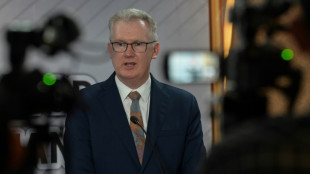
-
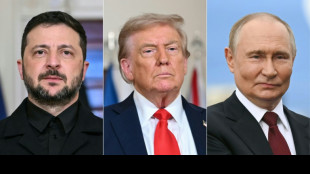 Polar bear waltz: Fake Trump-Putin AI images shroud Ukraine peace effort
Polar bear waltz: Fake Trump-Putin AI images shroud Ukraine peace effort
-
Sounds serious: NYC noise pollution takes a toll
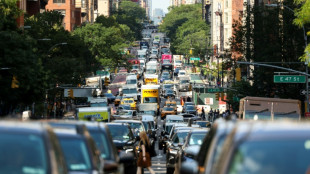
-
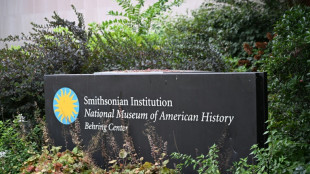 Trump slams US museums for focus on 'how bad slavery was'
Trump slams US museums for focus on 'how bad slavery was'
-
US agrees to talks with Brazilian WTO delegates on tariffs
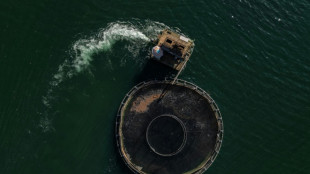
-
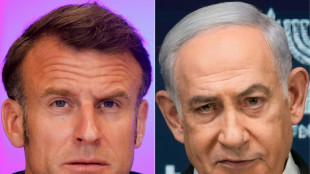 Israel-France row flares over Macron's move to recognise Palestinian state
Israel-France row flares over Macron's move to recognise Palestinian state
-
White House starts TikTok account as platform in US legal limbo
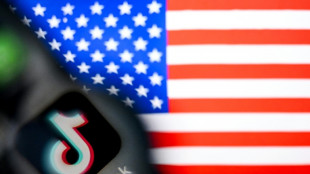
-
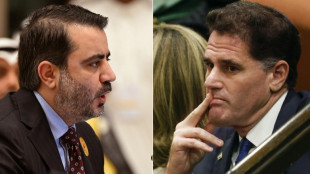 Syrian, Israeli diplomats met in Paris to discuss 'de-escalation': report
Syrian, Israeli diplomats met in Paris to discuss 'de-escalation': report
-
Wanyonyi, the former cattle herder ready to eclipse Rudisha
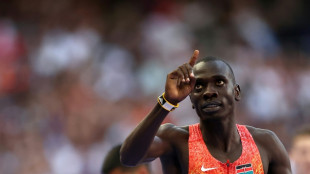
-
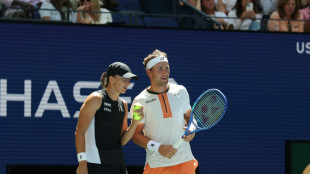 Swiatek, Ruud romp into US Open mixed doubles semis, Alcaraz, Djokovic out
Swiatek, Ruud romp into US Open mixed doubles semis, Alcaraz, Djokovic out
-
Mbappe lifts Real Madrid past Osasuna in La Liga opener
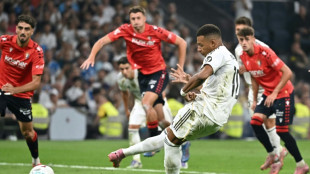
-
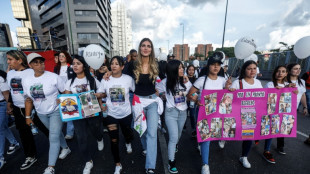 Venezuela says 66 children 'kidnapped' by the United States
Venezuela says 66 children 'kidnapped' by the United States
-
Brazil nixes red World Cup jersey amid political outcry
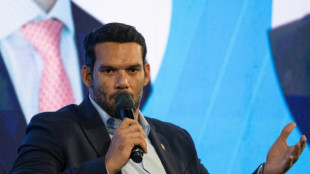
-
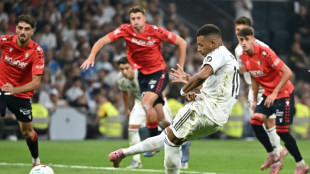 Real Madrid scrape past Osasuna in La Liga opener
Real Madrid scrape past Osasuna in La Liga opener
-
McIlroy backs 'clean slate' season finale format change
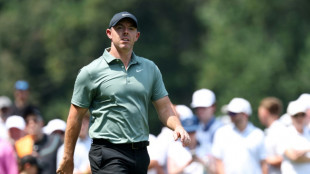
-
 'Call of Duty', 'Black Myth' wow Gamescom trade show
'Call of Duty', 'Black Myth' wow Gamescom trade show
-
Isak says 'change' best for everyone after Newcastle trust broken
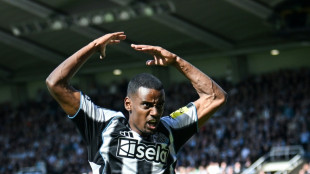
-
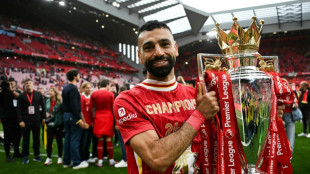 Salah makes history with third PFA player of the year award
Salah makes history with third PFA player of the year award
-
Rabiot, Rowe put up for sale by Marseille after bust-up
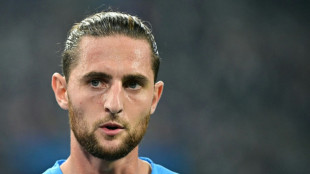
-
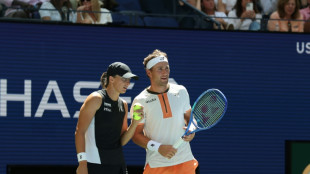 Weary Swiatek wins US Open mixed doubles opener
Weary Swiatek wins US Open mixed doubles opener
-
Miami fearing Messi blow ahead of Leagues Cup quarter-finals
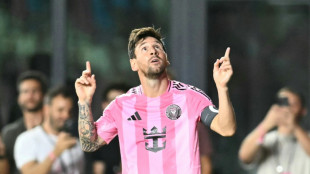
-
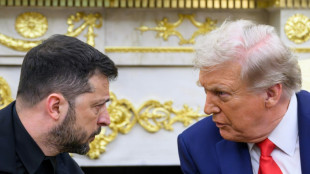 Trump rules out US troops but eyes air power in Ukraine deal
Trump rules out US troops but eyes air power in Ukraine deal
-
Trump course back on PGA schedule for 2026 season: tour
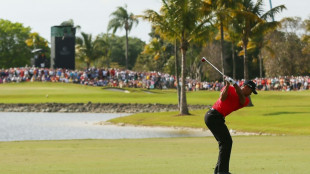
-
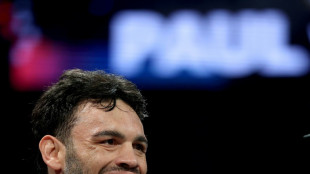 Mexican boxer Chavez Jr. deported from US over alleged cartel ties
Mexican boxer Chavez Jr. deported from US over alleged cartel ties
-
Former Mali PM Choguel Kokalla Maiga charged with embezzlement, imprisoned
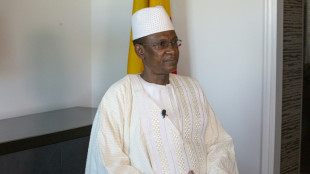
-
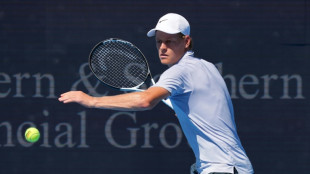 Sinner withdraws from US Open mixed doubles draw
Sinner withdraws from US Open mixed doubles draw
-
Mexican drug lord Zambada to plead guilty in US court
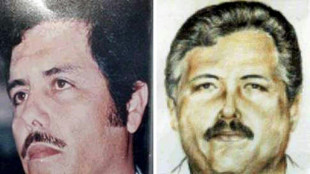
-
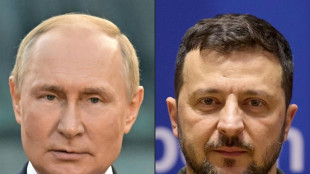 Russians welcome idea of Putin and Zelensky meeting
Russians welcome idea of Putin and Zelensky meeting
-
Spanish PM says 'difficult hours' left in wildfire fight
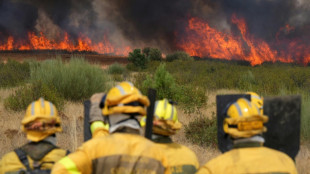
-
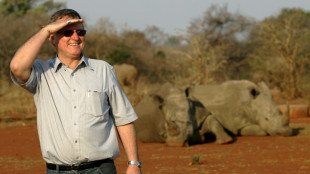 Ex-owner of world's largest rhino farm arrested for trafficking
Ex-owner of world's largest rhino farm arrested for trafficking
-
South Africa ring changes after Australia defeat in Rugby Championship
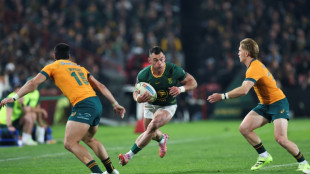
-
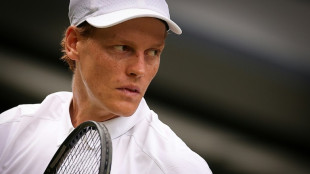 Sinner withdrawn from US Open mixed doubles draw
Sinner withdrawn from US Open mixed doubles draw
-
Serbia protesters accuse police of abuse and warn of 'spiral of violence'
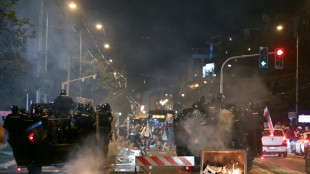
-
 Ronaldo gets Hong Kong hero's welcome, avoids Messi pitfall
Ronaldo gets Hong Kong hero's welcome, avoids Messi pitfall
-
Israel demands release of all hostages after Hamas backs new truce offer
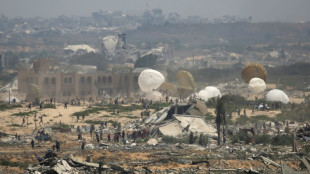
-
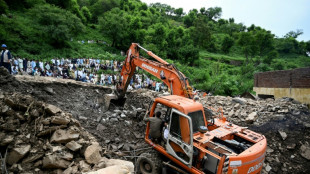 Death toll from northern Pakistan monsoon floods hits almost 400
Death toll from northern Pakistan monsoon floods hits almost 400
-
Trump says US air support possible for Ukraine security guarantee
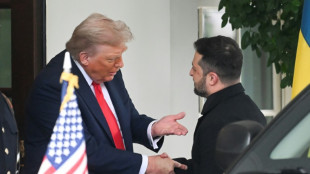
-
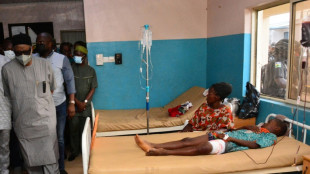 Nigerian judge delays trial over 2022 church massacre
Nigerian judge delays trial over 2022 church massacre
-
Lionesses hero Agyemang returns to Brighton on loan
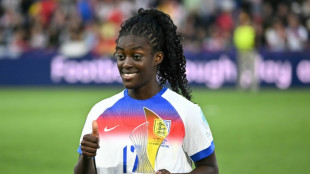

Catching the world's most wanted: the ICC's impossible task
The arrest on Tuesday of former Philippines President Rodrigo Duterte, by police acting on an International Criminal Court warrant tied to his deadly war on drugs, marks a success for the ICC, which has been struggling for almost 23 years against a lack of recognition and enforcement power.
Backed by 125 member states, the jurisdiction seeks to prosecute individuals responsible for the world's gravest crimes when countries are unwilling or unable to do so themselves.
The wheels of international justice grind slowly, as evidenced by the court's low conviction rate.
However, it’s not all about the final judgement, experts say.
The mere fact of pursuing alleged perpetrators of atrocities sends a message that the international community is determined to fight impunity.
- Catch me if you can -
Since it began work in 2002, the ICC has opened 32 cases for alleged war crimes, crimes against humanity, genocide and offences against the administration of justice.
Fourteen of them, or roughly 40 percent, are ongoing, in most cases because the suspects are still at large.
Without a police force, the Hague-based court is unlikely to catch them soon.
Of the 60 arrest warrants issued since 2002, only 21 had been carried out before Duterte's arrest.
The ICC relies on states to apprehend suspects.
But the incentive for them to cooperate is low because the court has "nothing to offer in return, except a commitment to seeing justice served", former ICC adviser Pascal Turlan said.
The court's wanted list includes Russian President Vladimir Putin, Israeli Prime Minister Benjamin Netanyahu and Ugandan warlord Joseph Kony. All three are accused of war crimes.
Russia is one of dozens of nations, including the United States, Israel and China, that do not recognise the jurisdiction of the ICC, hampering its ability to investigate their nationals.
But some member states also defy its authority by, for instance, refusing to hand over suspects.
"When states don't like what the ICC does, they don't often cooperate," said Nancy Combs, professor of law at William & Mary Law School in the United States.
- 11 convictions, all Africans -
ICC spokesperson Fadi El Abdallah stressed that the court's role is not to go after all suspected war criminals but to "encourage nations to deal with their own cases".
Each case comes with a unique set of challenges, from interference by national governments to witness intimidation.
The latter caused the case against Kenya's former deputy president William Ruto to fall apart in 2016, according to a former chief prosecutor.
These challenges partly explain the court's low conviction rate.
Since its inception it has handed down 11 guilty verdicts, mostly against officials from the war-torn Democratic Republic of Congo (DRC), and four acquittals.
All those judged were Africans, leading to accusations that the ICC is unfairly targeting the continent.
Combs pointed out that some African countries, including Uganda, Ivory Coast and the DRC, had referred their own wars to the court for investigation in the early days, while other cases had been instigated by the United Nations Security Council.
"The ICC has diversified a lot but non-African states have resisted ICC jurisdiction more fiercely," she pointed out, citing Russia as an example.
F.AbuZaid--SF-PST
